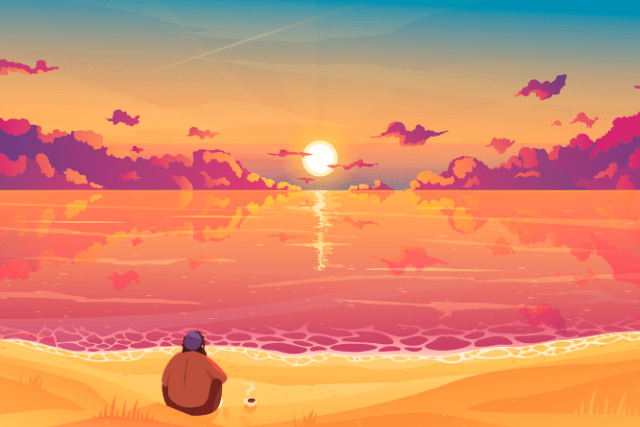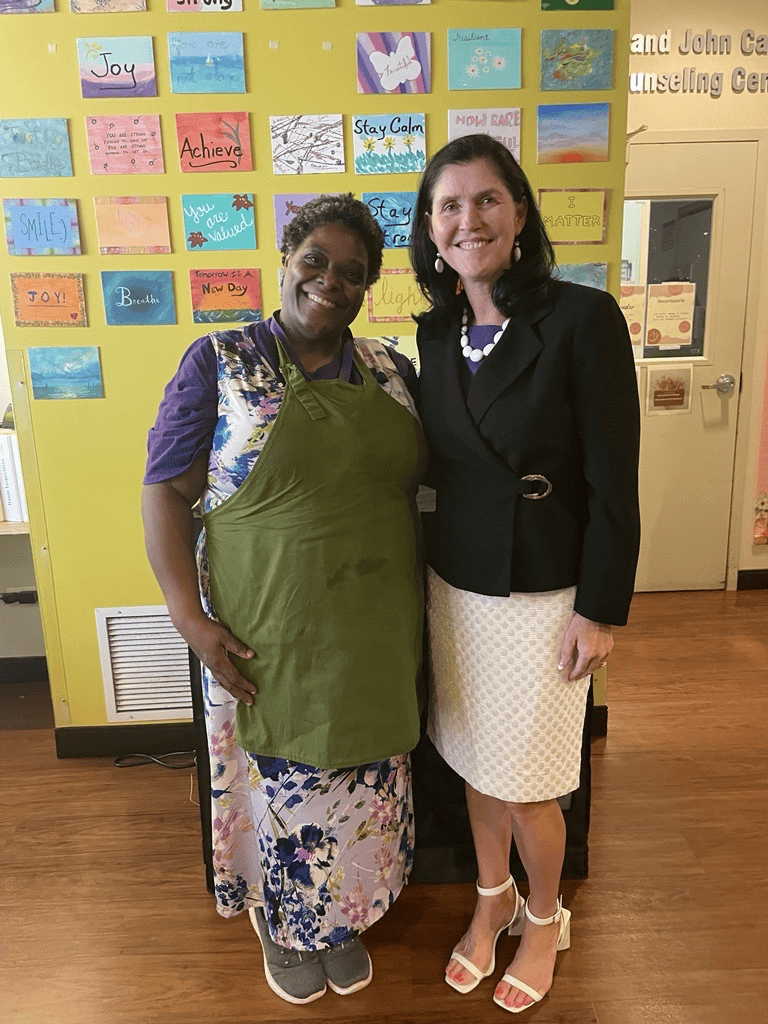
“Vulnerability is not oversharing. It’s sharing with people who have earned the right to hear our story.” ~Brené Brown
Earlier this year, I found myself in a place I never imagined: locked in a psychiatric emergency room, wearing a paper wristband, surrounded by strangers in visible distress. I wasn’t suicidal. I hadn’t harmed anyone. I’d simply told the truth—and it led me there.
What happened began, in a way, with writing.
I’m in my seventies, and I’ve lived a full life as a filmmaker, teacher, father, and now a caregiver for my ninety-six-year-old mother. But as I’ve gotten older, I’ve also felt something slipping. A quiet sense that I’m no longer seen. Not with cruelty—just absence. Like the world turned the page and forgot to bring me along.
One day in therapy, I said aloud what I’d been afraid to name: “I feel like the world’s done with me.”
My therapist listened kindly. “Why don’t you write about it?” she said.
So I did.
I began an essay about age, invisibility, and meaning—what it feels like to move through a culture that doesn’t always value its elders. I called it The Decline of the Elders, and it became one of the hardest things I’ve ever written.
Each sentence pulled something raw out of me. I wasn’t just writing; I was reliving. My mind circled through memories I hadn’t fully processed, doubts I hadn’t admitted, losses I hadn’t grieved. I’d get up, pace, sit down again, write, delete, rewrite. It was as if I were opening an old wound that had never really healed. The pain was real—and so was the urgency to understand it.
Then came the eye injection—a regular treatment for macular degeneration. This time, it didn’t go well. My eye throbbed, burned, and wouldn’t stop watering. Eventually, both eyes blurred. Still, I sat there trying to write, blinking through physical and emotional pain, trying to finish what I had started.
Everything hurt—my vision, my body, my sense of purpose. I didn’t want to die, but I didn’t know how to live with what I was feeling.
So I called 911.
“This isn’t an emergency,” I told the dispatcher. “I just need to talk to someone. A hotline or counselor—anything.”
She connected me to the Suicide & Crisis Lifeline—a lifeline for people in imminent danger of harming themselves. If you are suicidal, please call. It can save your life. My mistake was using it for something it’s not designed for.
I spoke with a kind young man and told him the truth: I was in therapy. I was writing something painful. I was overwhelmed but safe. I just needed a voice on the other end. Someone to hear me.
Then came the knock at the door.
Three police officers. Calm. Polite. But firm.
“I’m okay,” I said. “I’m not a danger. I just needed someone to talk to.”
That didn’t matter. Protocol had been triggered.
They escorted me to the squad car and drove me to the psychiatric ER. I felt powerless and embarrassed, unsure how a simple call had escalated so quickly.
They took me to the psychiatric ER at LA County General.
No beds. Just recliner chairs lined up in a dim, humming room. I was searched. My belongings were taken. I was assigned a chair and handed a bean burrito. They offered medication if I needed it. One thin blanket. A buzzing TV that never turned off.
I didn’t want sedation. I didn’t want a distraction. I just sat with it—all of it.
And around me, others sat too: a man curled into himself, shaking; a young woman staring blankly into space; someone muttering unintelligibly to no one at all. Real pain. Raw pain. People who seemed completely lost in it.
That’s when the shame hit me.
I didn’t belong here, I thought. I wasn’t like them. I had a home. A therapist. A sense of self, however fractured. I hadn’t tried to hurt anyone. I’d just asked to be heard. And yet there I was—taking up space, resources, attention—while others clearly needed it more.
But that too was a kind of false separation. Who was I to say I didn’t belong? I’d called in desperation. I’d lost perspective. My crisis may have looked different, but it was real.
Eventually, a nurse came to interview me. I told her everything—the writing, the injection, the spiral I’d been caught in. She listened. And sometime after midnight, they let me go.
My wife picked me up. Quiet. Unsure. I didn’t blame her. I barely knew what had just happened myself.
Later that night, I sat again in the chair where it had all started. My eyes ached less. But I was stunned. And strangely clear.
The experience hadn’t destroyed me. It had initiated me.
I also realized how naïve I’d been. I hadn’t researched alternatives. I hadn’t explored my real options. I’d reached for the most visible solution out of emotional exhaustion. That desperation wasn’t weakness—it was a symptom of a deeper need I hadn’t fully acknowledged.
And I learned something I’ll never forget:
Vulnerability is powerful, but it’s not always safe.
I used to think that honesty was always the best path. That if I opened up, someone would meet me there with compassion. And often that’s true. But not always. Systems aren’t built for subtlety. Institutions can’t always distinguish between emotional honesty and risk.
And not every person is a safe place for our truth. Some people repeatedly minimize our pain or dismiss our feelings. We might long for their validation, but protecting ourselves means recognizing when someone isn’t willing or able to give it.
Since then, I’ve kept writing. I’ve kept feeling. But I’ve also learned to be more discerning.
Now I ask myself:
- Is this the right moment for this truth?
- Is this person or space able to hold it?
- Am I seeking connection—or rescue?
There’s no shame in needing help. But there is wisdom in learning how to ask for it, and who to ask.
I still believe in truth. I still believe in tenderness. But I also believe in learning how to protect what’s sacred inside us.
So if you’re someone who feels deeply—who writes, reflects, or breaks open in unexpected ways—this is what I want you to know:
You are not weak. You are not broken. But you are tender. And tenderness needs care, not containment—care from people you can trust to honor it.
Give your truth a place where it can be held, not punished. And if that place doesn’t yet exist, build it—starting with one safe person, one honest conversation, one page in your journal. Word by word. Breath by breath.
Because your pain is real. Your voice matters.
And when shared with care, your truth can still light the way.
About Tony Collins
Tony Collins is a documentary filmmaker, educator, and writer whose work explores creativity, caregiving, and personal growth. He is the author of: Windows to the Sea—a moving collection of essays on love, loss, and presence. Creative Scholarship—a guide for educators and artists rethinking how creative work is valued. Tony writes to reflect on what matters—and to help others feel less alone.





